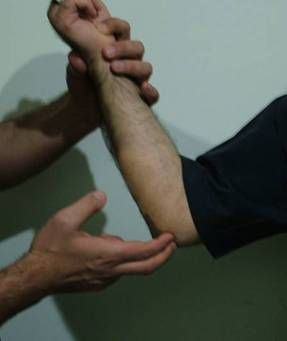Cubital tunnel syndrome is a condition where ulnar nerve(one of two main nerves of the hand)is exposed to compression or pressure which results in problems such as pain, swelling, numbness (in little finger and half of the ring finger) and weakness in hand power. This nerve is very superficial at elbow level and this why it is open to pressures and traumas.
When we bend our elbow, ulnar nerve stretches and pushes against to a bony prominence called ‘’medial epicondyl’’. If the patient keeps this position for a long time, or gets repetetive little traumas to this area, the connective tissue around the nerve thickens as a reaction. This, in time affects the transmission quality of the nerve.
First symptoms of cubital tunnel syndrome are numbness in ring and little fingers. Clumsiness while working with hands, pain and bending backwards of ring and little fingers other later symptoms of this syndrome.









